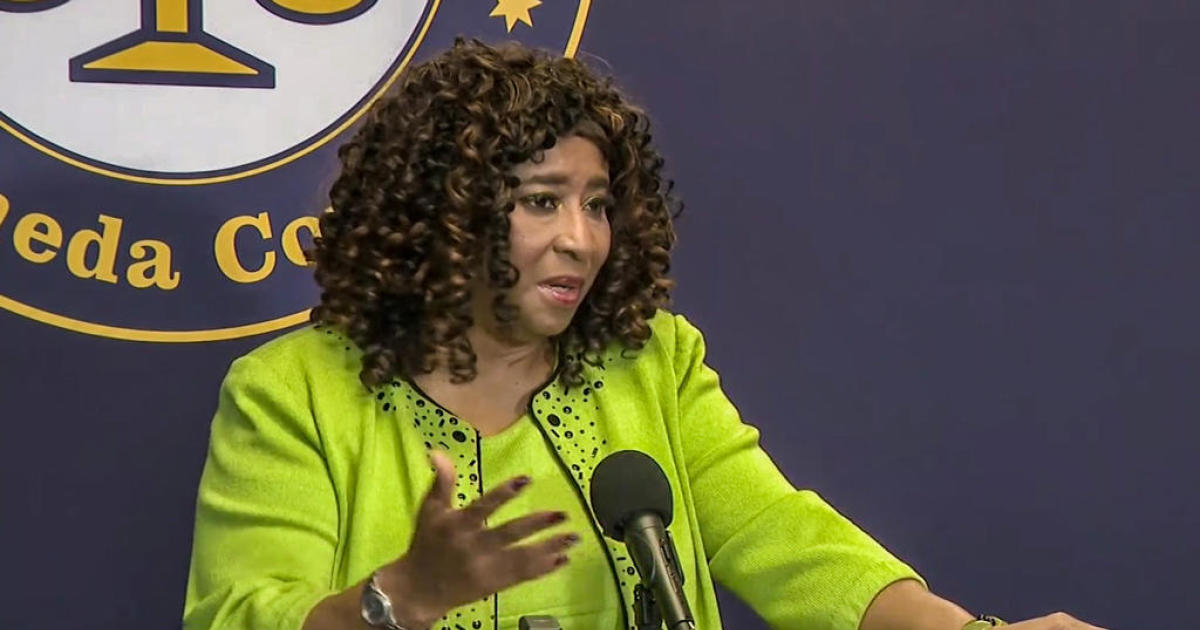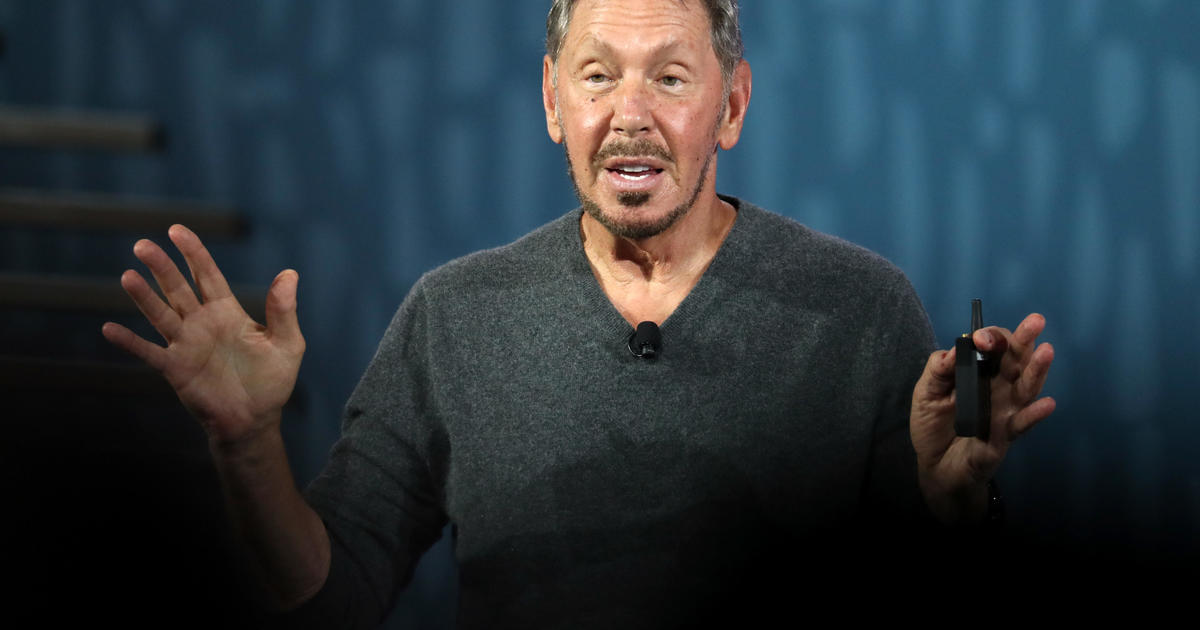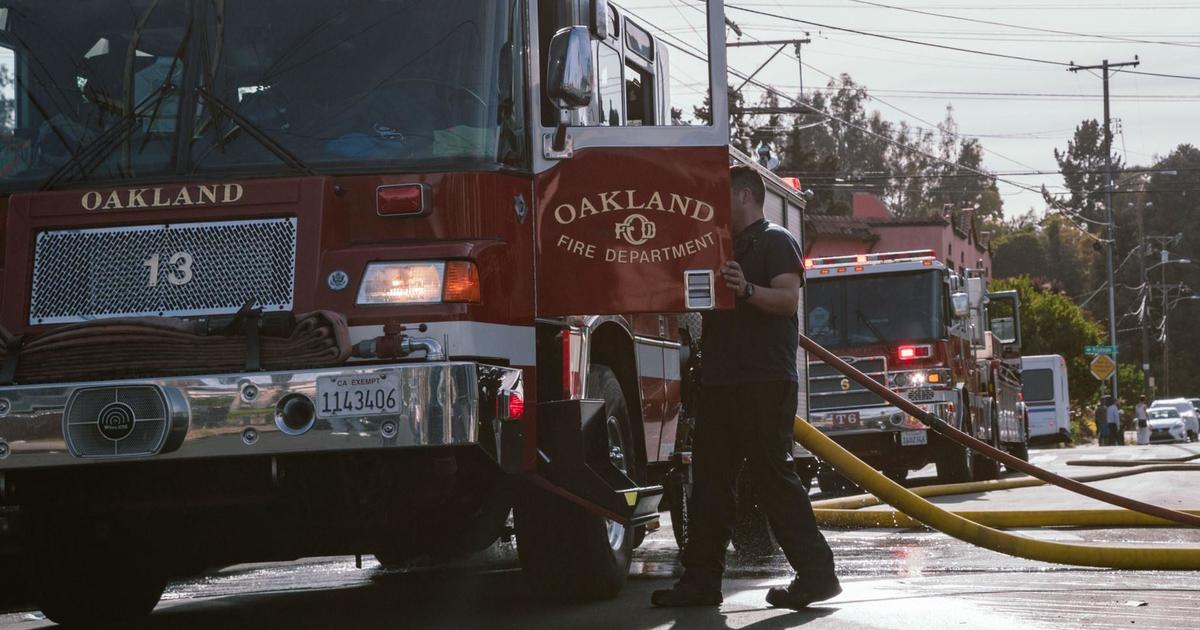UPDATE: Bay Area Counties Pausing Johnson & Johnson COVID-19 Vaccine Shots; State Continuing With Plans To Reopen On June 15
WALNUT CREEK (CBS SF/AP) — In the wake of a decision by federal health officials to pause use of the Johnson & Johnson single dose COVID-19 vaccine, Alameda, Contra Costa, San Francisco, Marin and San Mateo counties on Tuesday halted distribution of the single-dose vaccine.
The U.S. Centers for Disease Control and Prevention and the U.S. Food and Drug Administration recommended the pause "out of an abundance of caution" because of six reported cases in the country of a "rare and severe" type of blood clot following the vaccine. The six cases were among more than 6.8 million doses of the Johnson & Johnson vaccine administered in the U.S.
COVID Vaccine: San Francisco, Santa Clara County Open Eligibility to All Residents Age 16 and Up
On Tuesday, California health officials announced that the pause will not have any impact on plans to lift all of the state's COVID-19 restrictions and completely reopen the state on June 15.
"Our vaccine allocations will not be significantly impacted," officials said. "We remain set to fully reopen on June 15."
Gov. Gavin Newsom echoed those sentiments.
"J&J is just 4% of CA's supply from the feds right now," he tweeted. "Vaccines are still overwhelmingly safe. We're vaccinating 3+ million people a week and are still on track to fully reopen 6/15."
Before Tuesday's pause, production issues have plagued the J&J vaccine. State public health officials last week warned of significant drops in shipments, from 575,000 J&J doses last week to 67,000 doses this week and 22,000 doses next week.
As a result, California will receive two million doses of all vaccine doses this week and 1.9 million doses next week, in addition to doses provided directly to pharmacies and community health clinics by the federal government.
State epidemiologist Dr. Erica Pan also said California will convene a regional scientific safety workgroup to review information provided by the federal government. The review group created by California and joined by Nevada, Washington and Oregon approved Johnson & Johnson for use in the states on March 3. California state got its first shipment of the shots that week.
Alameda County officials said existing J&J appointments would be canceled or rescheduled as appointments for a two-dose vaccination series using either the Moderna or Pfizer vaccine, based on available supply.
Health officials operating the COVID-19 mass vaccination site at Oakland RingCentral Coliseum said no appointment cancellations nor loss of appointment capacity were expected because of the pause in J&J vaccine use.
In San Mateo County, there have been a total of 564,367 shots of COVID-19 vaccine have been delivered so far with just 22,306 of those being the single-dose J&J vaccine.
County health officials said they had received 500 J&J doses this week, which will be held pending further state and federal guidance.
Meanwhile, Contra Costa officals said they would continue to administer the other vaccines approved for emergency use from Pfizer and Moderna.
"Johnson & Johnson vaccine is a very small part of Contra Costa's vaccine allocation from the state and federal governments," officials said in a news release. "CCHS does not anticipate cancelling any of its vaccination appointments at this time."
San Francisco officials posted a similar message.
"Despite this news, the public is encouraged to get vaccinated as soon as possible," officials posted on Twitter. "The Pfizer and Moderna vaccines, which are currently available in SF, are proven to be highly effective at preventing hospitalization or death from COVID-19."
Santa Clara County health officials on Tuesday afternoon said the county was receiving 300,000 additional non-Johnson & Johnson vaccine doses directly from the federal government.
The infusion will allow them to significantly expand access to the vaccine and significantly mitigates the loss of the Johnson & Johnson vaccine, at least temporarily.
In a joint statement Tuesday, the Centers for Disease Control and Prevention and the Food and Drug Administration said they were investigating unusual clots in six women that occurred 6 to 13 days after vaccination. The clots occurred in veins that drain blood from the brain and occurred together with low platelets. All six cases were in women between the ages of 18 and 48.
The reports appear similar to a rare, unusual type of clotting disorder that European authorities say is possibly linked to another COVID-19 vaccine not yet cleared in the U.S., from AstraZeneca.
More than 6.8 million doses of the J&J vaccine have been administered in the U.S., the vast majority with no or mild side effects.
U.S. federal distribution channels, including mass vaccination sites, will pause the use of the J&J shot, and states and other providers are expected to follow. The other two authorized vaccines, from Moderna and Pfizer, make up the vast share of COVID-19 shots administered in the U.S. and are not affected by the pause.
CDC's Advisory Committee on Immunization Practices will meet Wednesday to discuss the cases and the FDA has also launched an investigation into the cause of the clots and low platelet counts.
"Until that process is complete, we are recommending a pause in the use of this vaccine out of an abundance of caution," Dr. Anne Schuchat, principal deputy director of the CDC, and Dr. Peter Marks, director of the FDA's Center for Biologics Evaluation and Research, said in a joint statement.
They are recommending that people who were given the J&J vaccine who are experiencing severe headache, abdominal pain, leg pain, or shortness of breath within three weeks after receiving the shot contact their health care provider.
U.S. health authorities cautioned doctors against using a typical clot treatment, the blood-thinner heparin. "In this setting, administration of heparin may be dangerous and alternative treatments need to be given," the FDA and CDC said.
European authorities investigating the AstraZeneca cases have concluded clots appear to be similar to a very rare abnormal immune response that sometimes strikes people treated with heparin, leading to a temporary clotting disorder.
Officials say they also want to educate vaccine providers and health professionals about the "unique treatment" required for this type of clot.
Johnson & Johnson said it was aware of the reports of "thromboembolic events," or blood clots, but that no link to its vaccine had been established.
"We are aware that thromboembolic events including those with thrombocytopenia have been reported with Covid-19 vaccines," said Johnson & Johnson in a statement. "At present, no clear causal relationship has been established between these rare events and the Janssen Covid-19 vaccine."
The J&J vaccine received emergency use authorization from the FDA in late February with great fanfare, with hopes that its single-dose and relatively simple storage requirements would speed vaccinations across the country. Yet the shot only makes up a small fraction of the doses administered in the U.S. as J&J has been plagued by production delays and manufacturing errors at the Baltimore plant of a contractor.
Last week the drugmaker took over the facility to scale up production in hopes of meeting its commitment to the U.S. government of providing about 100 million doses by the end of May.
Only about 9 million of the company's doses have been delivered to states and are awaiting administration, according to CDC data.
Until now concern about the unusual blood clots has centered on the vaccine from AstraZeneca, which has not yet received authorization in the U.S. Last week, European regulators said they found a possible link between the shots and a very rare type of blood clot that occurs together with low blood platelets, one that seems to occur more in younger people.
The European Medicines Agency stressed that the benefits of receiving the vaccine outweigh the risks for most people. But several countries have imposed limits on who can receive the vaccine; Britain recommended that people under 30 be offered alternatives.
But the J&J and AstraZeneca vaccines are made with the same technology. Leading COVID-19 vaccines train the body to recognize the spike protein that coats the outer surface of the coronavirus. But the J&J and AstraZeneca vaccines use a cold virus, called an adenovirus, to carry the spike gene into the body. J&J uses a human adenovirus to create its vaccine while AstraZeneca uses a chimpanzee version.
The announcement hit U.S. stock markets immediately, with Dow futures falling almost 200 points just over two hours before the opening bell. Shares of Johnson & Johnson dropped almost 3%.



